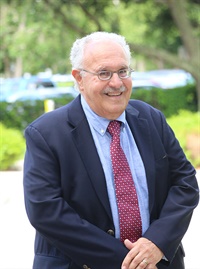Total Credits: 1.5
Tags: forensics practice
It is often difficult to begin to integrate a forensic component into an already established independent clinical practice as estimates of time allotment and other necessary areas may not be known. This workshop will cover such diverse items as: generating case referrals, needed expertise, learning court requirements including deadlines, flexibility with other scheduling demands, and record-keeping. A focus will be on differences between clinical and forensic psychology roles. We will discuss the areas you can control by consulting with lawyers along with those you cannot, such as court scheduling demands and how to deal with them.
Learning Objectives:
Participants will learn:
References:
Shapiro, D. & Walker, L. (2019). Forensic practice for the mental health clinician. New York: TPI
Walker, L.E., Shapiro, D.L. & Akl, S. (2020). Introduction to forensic psychology: Clinical & Social Perspectives. Second Ed. New York:Springer Nature
| Forensics webinar handout 10.19.23 (2.7 MB) | Available after Purchase | ||

David L. Shapiro is a Professor Emeritus of Psychology at Nova Southeastern University. He has been involved in the field of forensic psychology for over fifty years and was one of the founders of the American Board of Forensic Psychology. He has been involved in research, teaching, and training in the forensic area, has published twelve books and approximately fifty peer reviewed articles dealing with the psychology law interface. He has received Distinguished Contribution awards from the American Academy of Forensic Psychology, The California Psychological Association, and from the Division of Independent Practice of the American Psychological Association. He has served on the Ethics Committee of the American Psychological Association, and Chaired the Ethics Committee of the American Board of Professional Psychology.

Dr. Lenore Walker is a professor emerita from Nova Southeastern University College of Psychology where she was the Coordinator of the Forensic Psychology program for the doctoral and master's students. Currently she maintains a small independent practice of forensic psychology assisting attorneys representing those who harmed or killed their abusive partners in self-defense or other civil personal injury cases requiring evaluation of client's state of mind during or after experiencing trauma. It was her research on the Battered Woman Syndrome that introduced it into the courts during the 1970’s and she was the expert witness in the Ibn-Tamas case in 1978 where President Biden just pardoned Ms. Beverly Ibn-Tamas. Dr. Walker continues her research on domestic and gender violence with the recent publication of the Survivor Therapy Empowerment Program (STEP) for incarcerated females. Walker has lectured around the world on various issues impacting victim/survivors of interpersonal violence especially using feminist psychology approaches. She has published over 25 books and numerous professional book chapters and journal articles on these topics including four editions of The Battered Woman Syndrome. With her husband, Dr. David Shapiro, they have co-edited (with Dr. Akl) the Introduction to Forensic Psychology, 2nd Edition and the Forensic Practice for the Mental Health Clinician. She has been appointed the Chair of the American Psychological Association Working Group on Professional Practice Guidelines on PTSD and Trauma. Her passion is writing mystery novels and has published “Madness to Murder” on Amazon. She is the 2023 recipient of the APF Gold Medal Award for Impact in Psychology.